PepsiCo, Danone, and Mondelez International, the parent company of Oreo, Cadbury, and Toblerone to name a few, were just some of the leading global food corporations to make their way to Israel this week for a taste of the latest local innovations in food, beverage, and agriculture technology.
The multinational companies took part in the annual FoodTechIL event, a conference on Tuesday at the Tel Aviv port that drew some 1,500 participants (according to organizers) including senior executives, investors, representatives from more than 50 startups as part of an exhibition on the latest technologies in the food sector.
The event was hosted by the Strauss Group, one of Israel’s biggest food product companies, which also runs the food tech accelerator The Kitchen. A number of the startups in the exhibition are part of the accelerator, including several that have garnered international attention like Aleph Farms which unveiled the world’s first lab-grown, slaughter-free steak late last year, and the award-winning company Yofix which makes plant-based, soy-free yogurts.
SEE ALSO: Israel’s Only Food Tech Hub Has Something Cooking In The Kitchen
“Businesses today understand that we have a crucial role in using technology to make a positive impact on society, on people’s health and wellness and the environment,” said Ofra Strauss, Chairperson of the Strauss Group, in a statement. “Our responsibility is to make food in a sustainable way that goes beyond profits and revenue and focuses on people, society and the planet.”
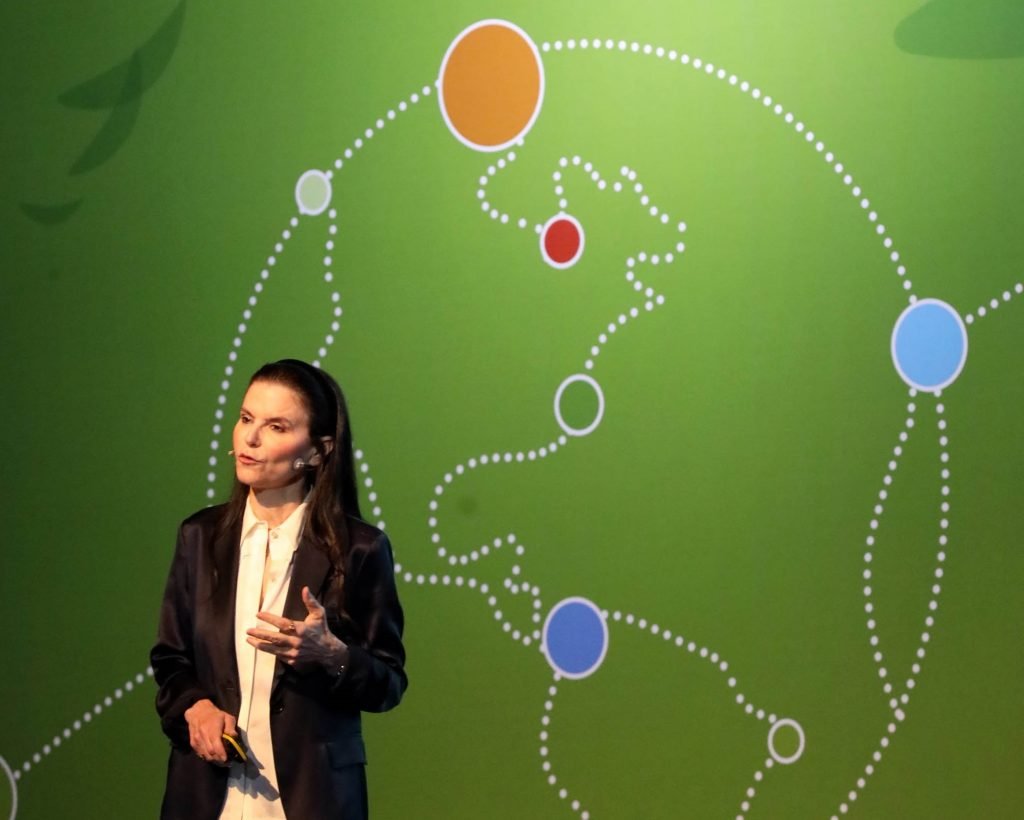
“As someone who was born into the food industry, food is not just words for me, I know that food matters,” Strauss said in an address at the event. To meet global challenges in the food chain supply and to feed a growing world population, “we cannot continue to do things the way we used to do,” she said. “We must reimagine the whole food world, we must renew it, and we must reassure everyone around it that we know what we are going to do.”
Israel’s food and agriculture tech sector
The food and agriculture industry is one of the largest and most important industries in the world, worth an estimated $8.7 trillion in 2018.
In Israel, food-agri tech firms drew some $103 million in equity investment in 2018, “putting the Israeli sector on par with, and sometimes exceeding, much larger nations like Australia and India,” according to a newly published report by Start-Up Nation Central (SNC).
And 2019 is on track to be a record funding year for the sector with $135 million in investments so far (up to Q3), SNC said. This includes the $22 million raised by DouxMatok, a startup that developed a patented sugar reduction solution and which has drawn international attention.
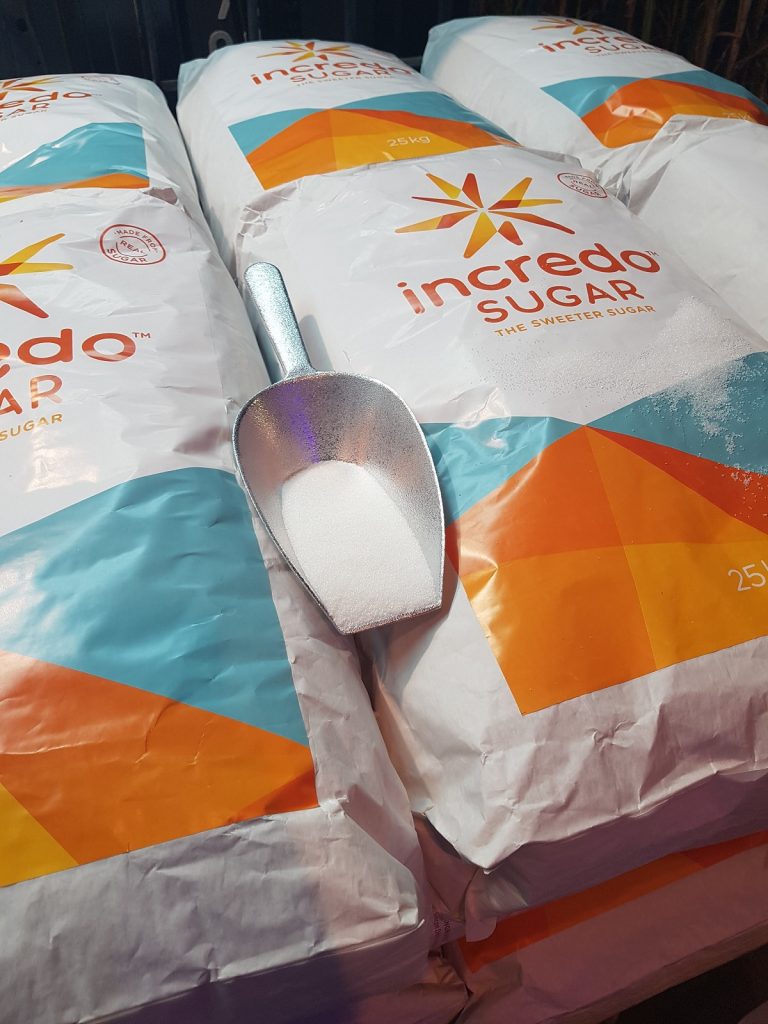
According to the newest data, Israel is home to 350 food-agri startups (as of mid-2019) founded in the past decade that focus on “deep tech” innovation primarily for the global agri-food industry. SNC also noted an increased rate of new company creation, with an annual average of 37 new startups since 2014. And since 2016, 124 startups have been established, more than the total founded in the previous six years.
This trend represents a “second wave” of food-agri tech innovation, SNC says, “driven by both the growing global demand for efficient and sustainable food production technologies and the strength of various technologies in Israel,” such as AI, robotics, data, sensing, and computation.
According to a report earlier this year by SNC and AgFunder, Israeli startups offering advanced imagery tech and complex systems such as farm management software, sensors and IoT, pest and disease detection and water efficiency tech for crops, drew the largest investments in 2018. These include companies like precision agriculture startup Taranis which raised $20 million, SeeTree, an agri-tech intelligence company that uses drones and sensor technology to provide farmers with actionable analytics on their crops and trees and which raised $15 million, and CropX which built machine-learning powered devices that go into the soil to boost agricultural output.
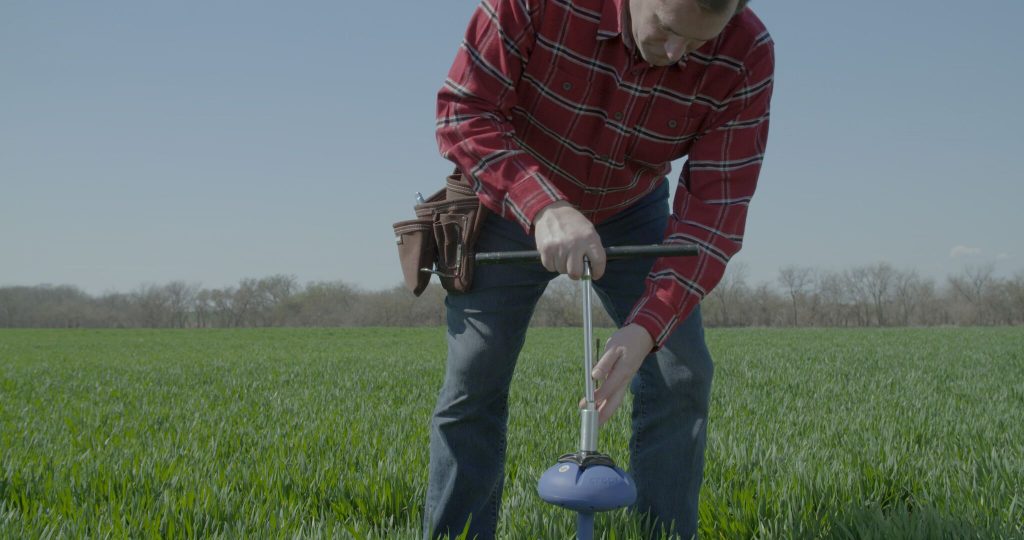
Startups focused on agri-biotechnology including AI identification of inputs, algorithm-powered seed breeding, root-based non-GMO breeding, and cures for dairy cows, drew the second-largest number of deals, the report said.
This second wave of companies using advanced tech in the food-agri sector builds on the longstanding tradition of innovation and excellence in agriculture that Israel developed over the last 100 years (even before the establishment of the state) to address resource shortages and the existential need to achieve food and water security in a challenging climate, the SNC report reads, referring to this period as the “first wave.”
“As the world’s population rises and urbanizes, standard agricultural methods are not enough to supply it without depleting natural resources and causing severe environmental damage. Climate change makes weather more volatile and less predictable, making growing food even more difficult, according to the report.
Tamar Weiss, SNC’s Agri-Food Tech Sector Development Manager, said in a statement, “We see a transition from food security to nutritional security, and growing interest not only in increasing yield and profit, but also in health and sustainability. Data is transforming this industry.”
Sign up for our free weekly newsletter
SubscribeMajor partnerships
This year has seen Israeli companies partner with major food corporations for significant ventures. Last week, an international consortium made up of global agrifood investment firm Finistere Ventures, Israeli food manufacturer Tnuva, beverage company Tempo Beverages, and Israeli crowdfunding platform OurCrowd launched a NIS 1 billion ($238 million) food tech incubator in the northern Israeli town of Kiryat Shmona. Dubbed “Fresh Start,” the incubator is expected to invest in over 40 advanced technology startups that will drive the food industry specifically in fields like milk and protein substitutes, personalized nutrition, innovative raw materials, smart food packaging, and Industry 4.0, including IoT, AI, and Big Data.
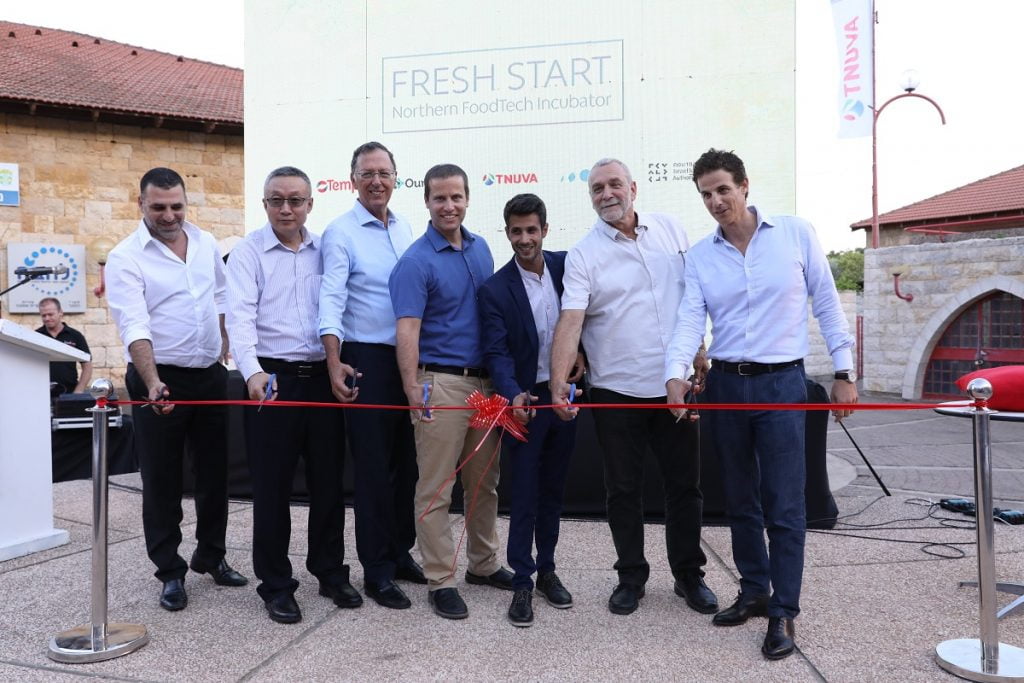
In May, Mars, Incorporated, the US multinational manufacturer of food and snack products such as M&M’s, Snickers, and Skittles, entered a partnership agreement with Jerusalem Venture Partners (JVP) to pursue innovative food tech solutions in Israel. According to the agreement, Mars is set to back relevant existing Israeli startups and support the formation of new ones, as well as work together with leading Israeli academic institutions, such as the Hebrew University, the Weizmann Institute, and the Technion, to further innovations.
“The partnership will tackle major global sustainability issues by providing scalable solutions to the challenges of feeding humanity in a way that preserves and protects the environment, JVP said at the time.
A month prior, Mondelez International, the Illinois-based food and beverage multinational, announced a partnership with the Israeli food tech incubator The Kitchen to develop opportunities in the snacking sector. Mondelez said in a statement at the time that the collaboration will allow for “unparalleled access and visibility into one of the world’s leading food tech ecosystems.”
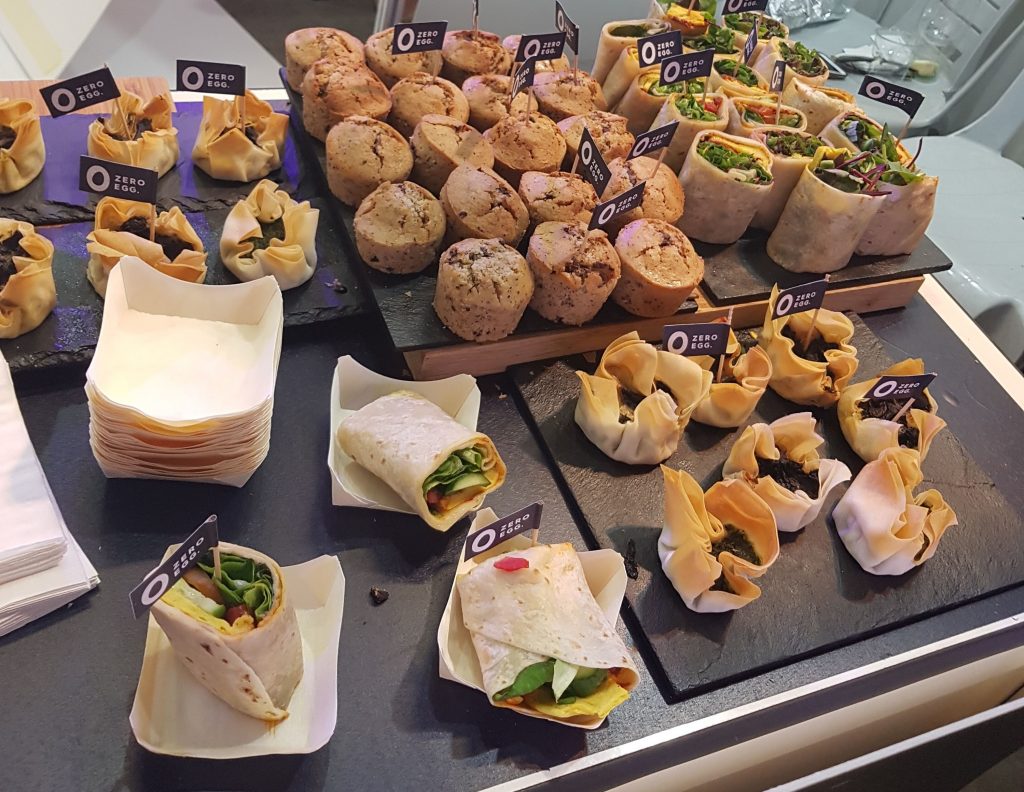
The Kitchen currently works with 12 startups including Aleph Farms, Yofix, Zero Egg, which developed a vegan substitute for eggs; Rilbite which developed a minced meat alternative with an extremely short ingredients list; BactuSense and Inspecto, two companies developing contaminant detection technologies; Flying SpArk, a developer of protein sources that focus on using insects such as fruit fly larvae to meet protein needs; Better Juice with a mission to reduce the sugar content in natural fruit juices (as NoCamels reported earlier this year); Myfavoreats, a SaaS-solution that customizes online recipes according to dietary restrictions; Bio-Fence, which is striving to create antimicrobial coatings and paints that destroy microorganisms upon contact; DLR (Deep Learning Robotics), which developed a controller that enables robots to replicate a human’s movement after observing them; and the award-winning Amai Proteins, which is developing a zero-calorie natural sweetener based on sweet proteins to replace sugar.
A majority of these companies were on display at the Startup Pavilion during FoodTechIL, among many others.
Israel’s AgriFood Week
FoodTechIL was one of two big events in the industry in Israel this week, and part of a larger network of gatherings dubbed Israel’s AgriFood Week by Start-Up Nation Central. As part of AgriFood Week, SNC is hosting a number of events at its offices in Tel Aviv throughout the week including an exclusive investor event, a “smart food” workshop, and an agri-food tech accelerators meetup.
On Wednesday, some 750 guests gathered at Tel Aviv University for AgriVest, an annual conference that drew international entrepreneurs, executives from some 200 multinationals, academics, industry leaders, and investors to explore opportunities for global partnerships and collaborations. The keynote speech was delivered by Bob Reitner, the executive VP and head of R&D at Bayer’s Crop Science Division which looks for sustainable agricultural solutions for farmers.
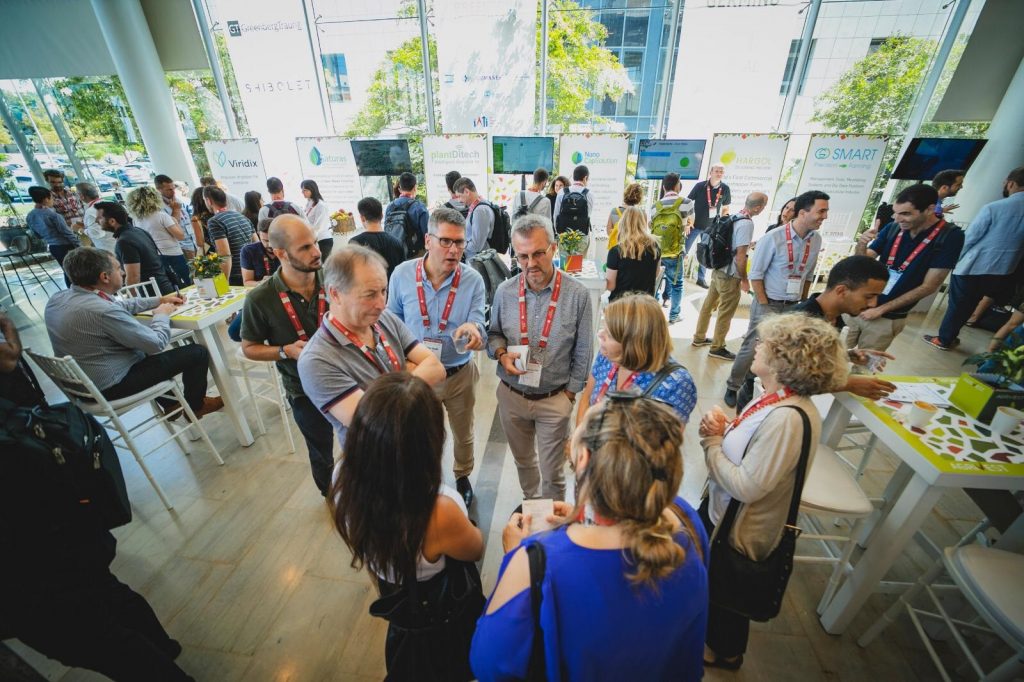
SEE ALSO: On The Menu: 12 Food-Agri Tech Startups To Watch In 2018
The event featured panel discussions on agrifood tech challenges, opportunities, and investments.
“Are we doing enough to address the issues related to the vast acreage of row crops? Or cattle and their impact on climate? Their nutritional value?” asked Nitza Kardish, VP of The Trendlines Group in an opening address asked the audience. The Trendlines Group is the innovation commercialization company that hosts AgriVest.
“What will help us sustain a habitable world is addressing our most pressing problems in agriculture — and the most basic ones: water, soil, air. From both the global standpoint and the more limited agricultural perspective, these are the most vulnerable and valuable resources. We need to conserve their quality and use them efficiently to grow more food in an environmentally neutral manner,” she said.
AgriVest also hosted its annual startup contest with 12 competitors selected from some 60 applicants. The top spot went to Israeli biotech startup eggXYT which developed technology that can detect the gender of chicks before hatching, answering the demands of conscious egg consumers who abhor the practice of male (which don’t produce eggs) chick culling.
Other competitors included Roots Sustainable Agricultural Technologies, a developer of two proprietary agricultural solutions for the world’s smallholding farmers – Root Zone Temperature Optimization and Irrigation By Condensation (IBC), Saillog, a Tel Aviv-based startup leveraging artificial intelligence (AI) and computer vision algorithms to identify plant diseases and deficiencies, and SeeTree.
Related posts

Editors’ & Readers’ Choice: 10 Favorite NoCamels Articles

Forward Facing: What Does The Future Hold For Israeli High-Tech?

Impact Innovation: Israeli Startups That Could Shape Our Future


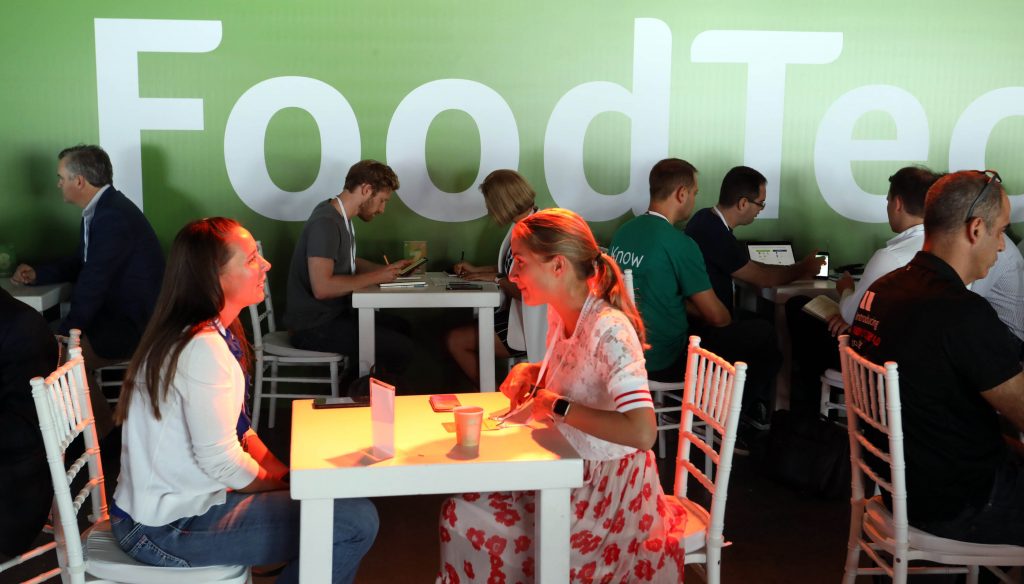

Facebook comments